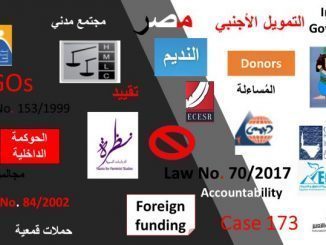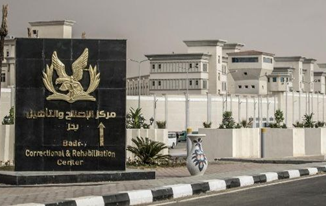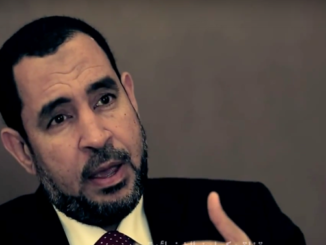
When things go wrong, the regime invariably blames the Muslim brothers
Passengers waiting on the platform had only seconds to run before they were engulfed in flames. On February 27th a train hurtled into Cairo’s main station, crashed into a barrier and exploded. Twenty-two people died. The cause was a negligent conductor who failed to apply the brake before getting off his train to argue with another worker. It was another failure by a state railway with a long history of them.
For Egypt’s obsequious journalists, however, darker forces were at work. Pundits falsely claimed that the conductor was from Kerdasa, a village known for its sympathies to the Muslim Brotherhood, once Egypt’s pre-eminent Islamist group. “I cannot rule out that the Brotherhood used the driver,” said Nishat al-Dehi, a television host. An academic interviewed on another channel argued that the furious reaction to the crash was proof of a conspiracy. The group wanted to “divert attention from the achievements” of President Abdel-Fattah al-Sisi.
Nearly six years have passed since Mr Sisi, then the defence minister, overthrew an elected Brotherhood government in a coup. He paints himself as a modernising force, the man who rescued Egypt from an illiberal regime and set out to fix its stagnant economy. Inconvenient stories are swept under the rug by the secret police, who call networks each day with a list of topics that cannot be discussed. Even the most servile journalists, however, could not ignore a catastrophe in the heart of Cairo. They turned instead to a familiar scapegoat. The Brotherhood is banned, its assets confiscated, its leaders jailed or scattered in exile—and yet, to judge by the media, it is responsible for the country’s every ill.
Last autumn the price of potatoes rose from five Egyptian pounds ($0.30) per kilogram to 15 or more. It was supply and demand in action: a currency devaluation in 2016 pushed up seed costs, so farmers stopped planting a loss-making crop. For the private daily, Al-Watan, this was not simple economics. It was “financial terrorism”. The Brotherhood had supposedly purchased the nation’s potato crop and hoarded it in warehouses. A sugar shortage in 2016 was similarly blamed on the group.
Freak winter storms in November 2015 dumped more than 50mm of rain on Alexandria, nearly double what the coastal city receives in an average month. The flooding that followed was, naturally, blamed on the Brotherhood. To prove that it had blocked sewers with cement, the interior ministry released a photograph of a man sitting next to a drain.
Conspiracy theories are not new in Egypt’s discourse. Shark attacks and out-of-wedlock pregnancies were once blamed on Mossad, Israel’s spy service. The Brotherhood has its own wild rhetoric. In November jihadists thought to be linked to Islamic State killed seven Coptic Christians. The Brotherhood’s website called it a false-flag attack meant to defame Islamists. Egyptian police, for their part, killed ten suspects and claimed they were a well-funded Brotherhood cell because they had a stockpile of bread, cheese and canned tuna—though, notably, no potatoes.
*This article was published by The Economist last Sunday 10 March 2019.



